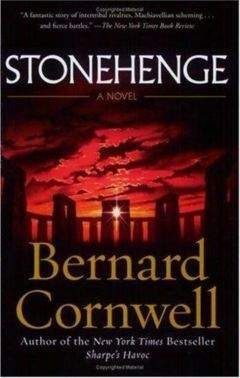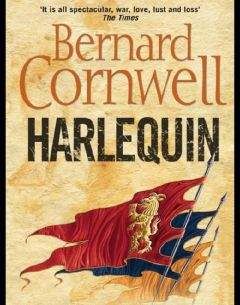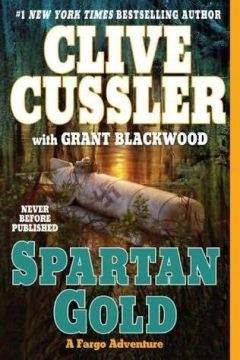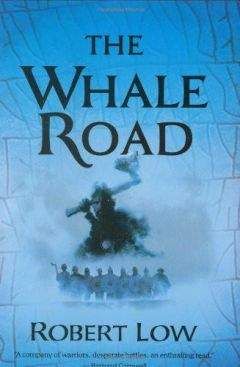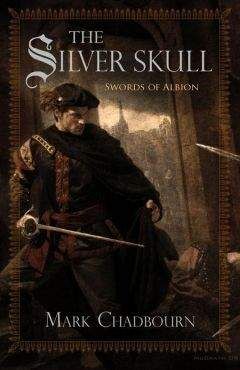They spent that night in one of the huts Stakis had made for the meeting of the tribes. Saban lit a fire on which they cooked trout and then he watched Aurenna until she became tired of his gaze. 'What is it?' she asked.
'Are you a goddess?' Saban asked.
'Saban!' she said reproachfully.
'I think you are a goddess.'
'No,' she replied with a smile, 'but Erek does want me for something special. That is why we travel.' She knew he was worried for her and so she reached over and touched his hand. 'And Erek will preserve us. You'll see.'
Saban woke in the dawn to discover that a party of Ratharryn's warriors had come to the shrine during the night. The leader of the warrior band was Gundur, one of Lengar's closest companions and the man who had dragged Saban from his hut on the morning that he had been enslaved to Haragg. Gundur had come from south of the river, from Drewenna, and Saban saw how Gundur and his men strutted through Sul's huts. This was Kellan's territory, but the spearmen of Ratharryn were lords here. Saban ate with Gundur's men and listened as they told of Lengar's wars: how he had seized a herd of Cathallo's oxen; how he had raided deep into the land of the people to the east of Ratharryn; and how he had forced a heavy tribute from the people who lived by the sea at the mouth of the River Mai. Now, Gundur said, even as they spoke, Lengar was at Drewenna. He had gone there, Gundur explained, to fetch Kellan's spearmen. 'The harvest is in,' Gundur said, 'so what better time to attack Cathallo? We'll finish them for ever. You can join us, Saban. Share the plunder, eh?' Gundur smiled as he offered the invitation. He seemed friendly, hinting that the old enmity between Saban and Lengar was long past.
'What brings you to Sul?' Saban asked.
'You,' Gundur said. 'Lengar heard the last of the stones had come and sent us to find out if it were true.'
'It is true,' Saban said, gesturing at the boats, 'and you should tell Lengar that Kereval of Sarmennyn has come with them to receive the treasures.'
'I shall tell him,' Gundur promised, then turned to watch as Aurenna walked from the huts to the river. She carried a water-skin that she stooped to fill, then carried back, and Gundur watched her every step. 'Who is that?' he asked in an awed voice.
'My wife,' Saban said coldly.
'I shall tell Lengar you're both here. He'll be pleased.' Gundur stood. He hesitated a heartbeat and Saban wondered if he was about to mention Jegar's death, which had taken place so close to where they had eaten, but Gundur merely asked if Saban intended to carry the stones up river that same day.
'We do,' Saban said.
'Then we shall see you in Ratharryn,' Gundur said, and he led his men south while Saban and his family went back to the stones and continued the weary journey of poling the heavy boats against the river's flow. So now Lengar knew that Aurenna had come to the heartland, and knew she was beautiful; Saban surreptitiously touched the nutshell that hung at his neck.
The journey became much easier when they were half a day out of Sul for now the river was shallow enough for men to wade and so haul the boats, and next day they came to a place where a smaller river joined the Sul from the south and Lewydd turned the boats into that narrower stream. The current was less strong, almost placid, and they made easy progress, coming that evening to the place where the water was at last too shallow to carry the boats and where the great sledges waited. Next day men arrived from Drewenna and they heaved the eleven small stones off the boats and on to the sledges, then hauled the boats themselves on to even larger sledges.
The mother stone alone remained and it took a whole day to align the boat with a sledge on the shore and to cut more rollers, and next day, using oxen to drag the boulder, they slid the mother stone from boat to sledge. They hauled the boat ashore the following day, by which time the first stones were already being dragged eastwards.
It took three days to cross the low watershed. They followed a grassy track that climbed gently and then fell, just as gently, to the bank of the river which flowed eastwards. Here the boats were lifted from the sledges and relaunched and the stones were carried back aboard. For five years Lewydd and his men had been doing this. Five years of lifting and levering, heaving and sweating, and now the great task was almost finished. It took three days to carry all the stones off their sledges and on to the boats, but at last the job was done and it would never need to be done again.
Next morning they floated the boats down the river and the men sang as they rode the current. They did not hurry and the only effort that was ever needed was an occasional shove of a pole to drive a boat around an obstruction. The sun shone, filtering through the last green leaves as the river slowly twisted between banks thick with feathery willow-herb. Corncrakes sounded harsh from the fields and woodpeckers stuttered in the trees. The sun shone. When they passed Cheol, Ratharryn's southernmost settlement, the folk lined the river bank to dance and sing a welcome to the stones. 'Tomorrow!' Saban called to them. 'We shall be at Ratharryn tomorrow! Tell them we're coming!'
Once past Cheol the river entered the trees again. The current was faster now, so fast that those men who had elected to walk along the bank had to half run to keep up with the fleet. There was an air of excitement now. The great work was so close to its finish and Saban wanted to shout his triumph at the sun. It had all been done for Slaol, and surely Lengar's enmity would fade in the glory of Slaol's approval. Saban was not sure how that approval would be shown, but his doubts about Camaban's dream were fading. It was the journey itself that had restored his faith for he had seen for himself just how much effort had been needed to move the boats and the stones and he could not believe that five such hard years were for no purpose. Slaol must respond! Just as a short lever of wood could move a great stone, so little men could shift a vast god. Camaban was surely right.
'Don't let the current take them!' Lewydd was shouting and Saban came out of his happy reverie to see that the river had almost reached its confluence with the bigger River Mai and that it was time to drag the boats into the bank and tether them there for the night. Next morning they would have to haul the stones upriver against the Mai's current to Ratharryn, so they would spend this last night of the journey amidst the trees which grew on the narrowing spit of land between the two rivers.
They tied the boats to the bank, then made fires. It was a warm, dry night, so there was no need for shelters, but they did make a cordon of fires from river bank to river bank to deter the malevolent spirits, and Kereval's warriors were set to watch beside the fires and feed the flames through the darkness. The rest of the travellers gathered and sang songs until tiredness overwhelmed them and then they wrapped themselves in cloaks and slept beneath the trees. Saban listened to the river noises until the dreams came. He dreamed of his mother, seeing her try to hammer a peg into their hut's pole, and when he asked her why she did it, she had no answer.
And suddenly the dream was full of new noises, of screaming and terror, and he woke, realising it was no dream at all, and he sat up to hear shouts from beyond the fire cordon and a strange ripping sound overhead. Then something thumped into a tree and he realised it was an arrow and the ripping sound was the noise of other arrows flickering through the leaves. He seized his bow and his quiver of arrows and ran to the fire cordon. Immediately two arrows whipped from the dark close to him and he understood the flames made him into a target, so he hid himself behind some bushes where Mereth and Kereval both sheltered. 'What's happening?' Saban asked.
Neither man knew. Two of Kereval's warriors were wounded, but no one had seen the enemy or even knew what enemy it was, but then Kargan, Kereval's nephew, came running and shouting for his uncle and his voice provoked another flight of arrows from the dark.
'They're stealing one of the stones,' Kargan said.
'They're stealing a stone?' Saban could not believe what he heard.
'They're towing one of the boats upstream!' Kargan said.
Scathel had overheard. 'We have to follow,' he said.
'What about the women and the children?' Kereval demanded. 'We can't leave them alone.'
'Why would they want to steal a stone?' Mereth asked.
'For its power?' Saban suggested.
The noises in the wood were fading and no more arrows flickered from the dark. 'We should follow them,' Scathel demanded again, but when Saban and Kargan crept into the darkness beyond the fire cordon, they found nothing. The enemy had gone, and in the morning, when a mist was drifting over the rivers, they discovered that one of the triple-hulled boats had been dragged away. It had carried one of the smaller stones, but now it was gone. One of the two wounded men died that morning.
And Saban saw that the moon stayed in the sky after the dawn and he recalled that he had dreamed of his mother and she had ever been a worshipper of Lahanna. The goddess, he feared, was striking back, but then he found some of the arrows and saw they were fledged with ravens' feathers. Black feathers, like those the men of Ratharryn used, but he said nothing of his suspicions for the great work was almost done.
—«»—«»—«»—
The last part of their journey was up the Mai. The sun shone warmly, but the mood was sombre and the memory of the arrows in the night chilling. The men watched the wooded banks warily as they towed the boats through the waist-deep water with the spearman's corpse laid on the long mother stone. Scathel had insisted that the corpse be carried to Ratharryn for he wanted to place the treasures against the dead man's skin so that the departed spirit would know that his journey and death had not been wasted.
Saban walked up the river bank holding Leir's hand. Aurenna carried Lallic and listened as Saban talked of the hills they passed. That one was where a great bear had been killed, and that one was where Rannos, the god of lightning, had struck a thief dead, and this one, he said, pointing to a wooded hill on the left, is where our Death Place lies. 'The Death Place?' Leir asked.
'We don't burn our dead in Ratharryn,' Saban explained, 'but lay them in a small temple so the birds and beasts can eat their flesh. Then we bury the bones, or perhaps put them in a mound.'
Leir made a face. 'I'd rather be burned than eaten.'
'So long as you go to the ancestors,' Saban said, 'what does it matter?'
They rounded the corner of the hill and on the river bank ahead was a great crowd of people who began to sing in welcome as the first of the boats came in view. 'Which one is Lengar?' Aurenna asked.
'I don't see him,' Saban said, and as he drew closer he saw that Lengar was not there. Mereth's younger half-brothers were there and so were Saban's sisters, and a host of others he remembered, and when he came near they ran to him and reached out to touch him as though he had a sorcerer's power. When they had last seen Saban he had been little more than a boy, but now he was a man, tall and bearded and straight-backed, with a hardened face and a son of his own. They stared at Aurenna in amazement, awed by her golden hair and gentle face that was so miraculously untouched by the scars of any disease. Lengar, folk told Saban, was still at Drewenna, and then the crowd parted to let Galeth through. He was old now, old and white-haired, and one eye was milky white and his back was bent and his beard thin. He first embraced Mereth, his eldest son, then clasped Saban. 'You have come back for good?' Galeth asked Saban.
'I don't know, uncle.'
'You should stay,' Galeth said softly, 'stay and be chief.'
'You already have a chief.'
'We have a tyrant,' Galeth said fiercely, his hands on Saban's shoulders. 'We have a man who loves war more than peace, a man who thinks every woman is his own.' He looked at Aurenna. 'Take her away, Saban,' he added, 'and don't bring her back until you have become chief here.'
'Has Lengar built the temple?'
'It is being built,' Galeth said, 'but Camaban came in the spring and he and Lengar argued. Camaban came with Haragg, and they both said the temple must be changed, but Lengar insisted it must be finished just as it is for it will give him power, and so Camaban and his companion went away.' Galeth looked at Aurenna again. 'Take her away, Saban! Take her away! He'll see her and he will take her for himself!'
'I want to see the temple first,' Saban said and he led Aurenna up the hill on a wide path that had been worn into the turf by the passage of the sledges carrying the stones from the river. Kereval and his men followed, wanting to see how their temple looked in its new home.
'Lengar assures us it is a great war temple,' Galeth said, hobbling beside Saban. 'He believes Slaol is not just the god of the sun, but the god of war too! We already have a god of war, I told him, but Lengar says Slaol is the great god of war and of slaughter. He believes he will finish his temple, Saban, then rule all the world.'
Saban smiled. 'The world may not agree.'
'What Lengar wants, Lengar takes,' Galeth said grimly, giving Aurenna another anxious glance.
Saban touched the nutshell. 'We shall be safe, uncle,' he said, 'we shall be safe.'
The path led north at first, climbing between harvested fields and skirting the high trees where the Death Place was hidden, then turned westwards and now Saban could see the great earthen wall of Ratharryn off to his right. He showed the embankment to Leir, telling him that that was the place where he had grown up. On either side now were the ancestors' grave mounds and Saban dropped to his knees and bent his head to the grass in thanks for their protection over the years.
Once past the mounds the path turned south to drop into a small valley, then joined the sacred path that Gilan had ordered made when the first stones came from Cathallo. The hill bulged, serving like the double bend in Cathallo's sacred path to hide the temple until the last moment of the approach, and Saban felt a growing excitement as he climbed between the ditch and chalk banks. He had last seen the Temple of Shadows in the high valley at Sarmennyn, but now he would see it again, though wondrously moved across a whole wide land and a cold green sea. He took hold of Aurenna's hand and she smiled at him, sharing his anticipation.
The first they saw of the temple was the sole remaining sun stone that stood high in the sacred path, and after it the twin pillars at the shrine's gateway of the sun came into view, and then at last they breasted the hill's slope and the temple was in front of them.
It was more than half built. The entrance corridor of lintelled stones was finished and the double circle of pillars was almost two-thirds complete, standing around the temple's centre and flanked by the four moon stones. Saban guessed that only thirty more stones needed to be placed and he saw that the holes for those pillars had already been dug, while off to one side of the temple, beyond the ditch and banks, a pile of Sarmennyn's stones waited to be placed. All that was needed now was for those pillars to be carried across the entrance causeway and for the last stones to be brought up from the river and the temple would be finished. But already it was near enough complete so that a man could see how the shrine would look when the last stone was planted. Saban stopped by the lichen-covered sun stone and gazed at what he and Lewydd and so many others had achieved over the last five years. 'Well?' Galeth asked.
